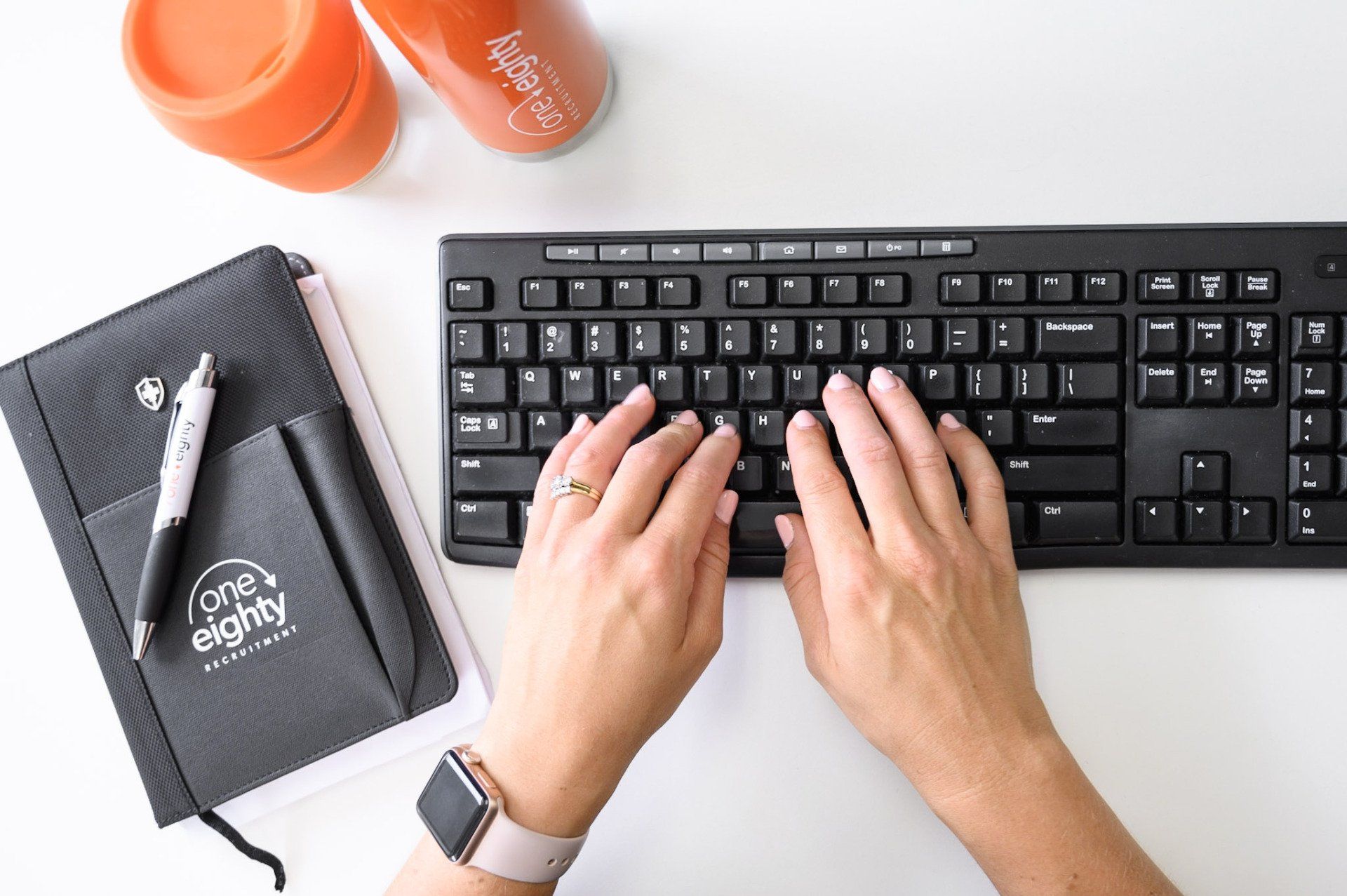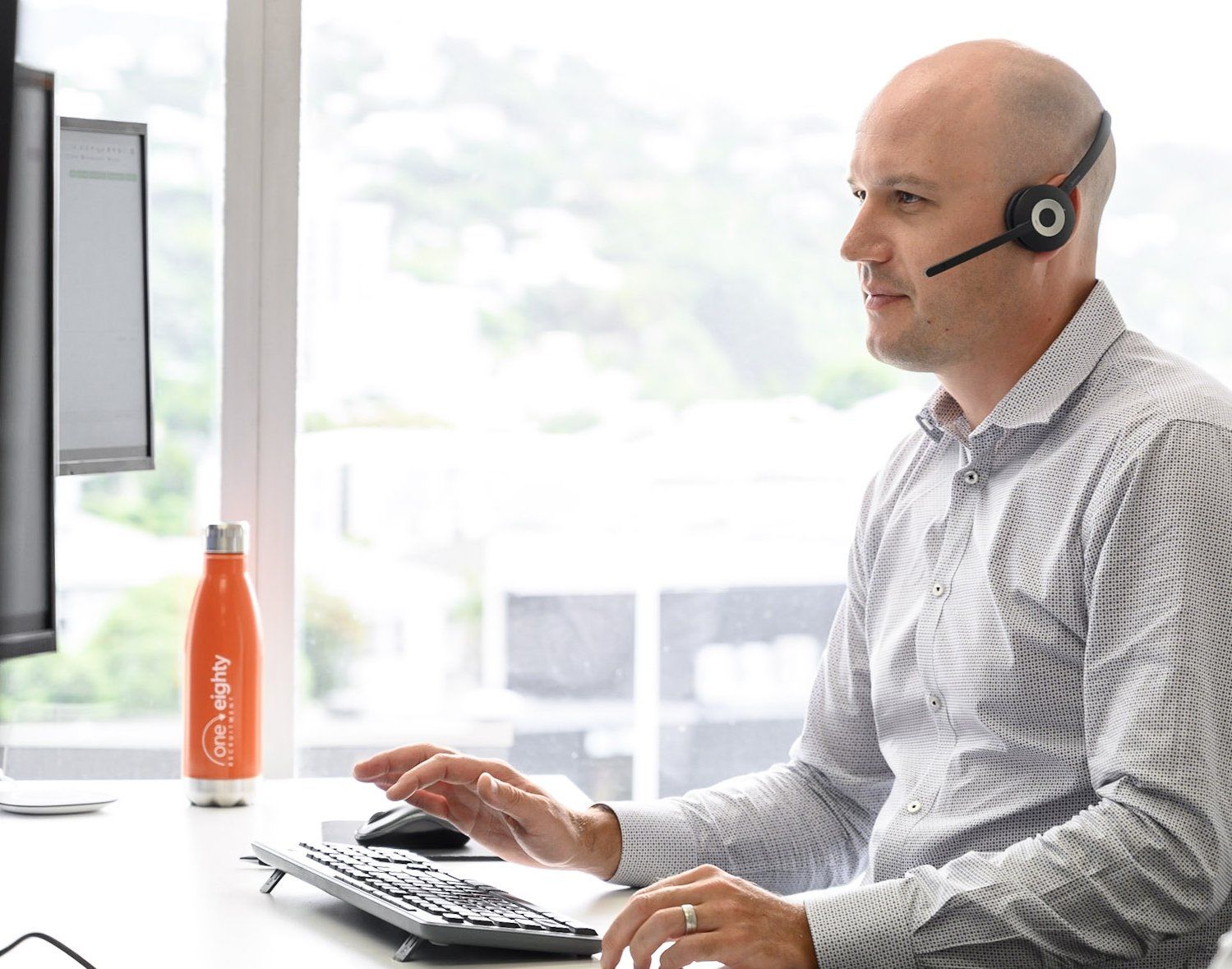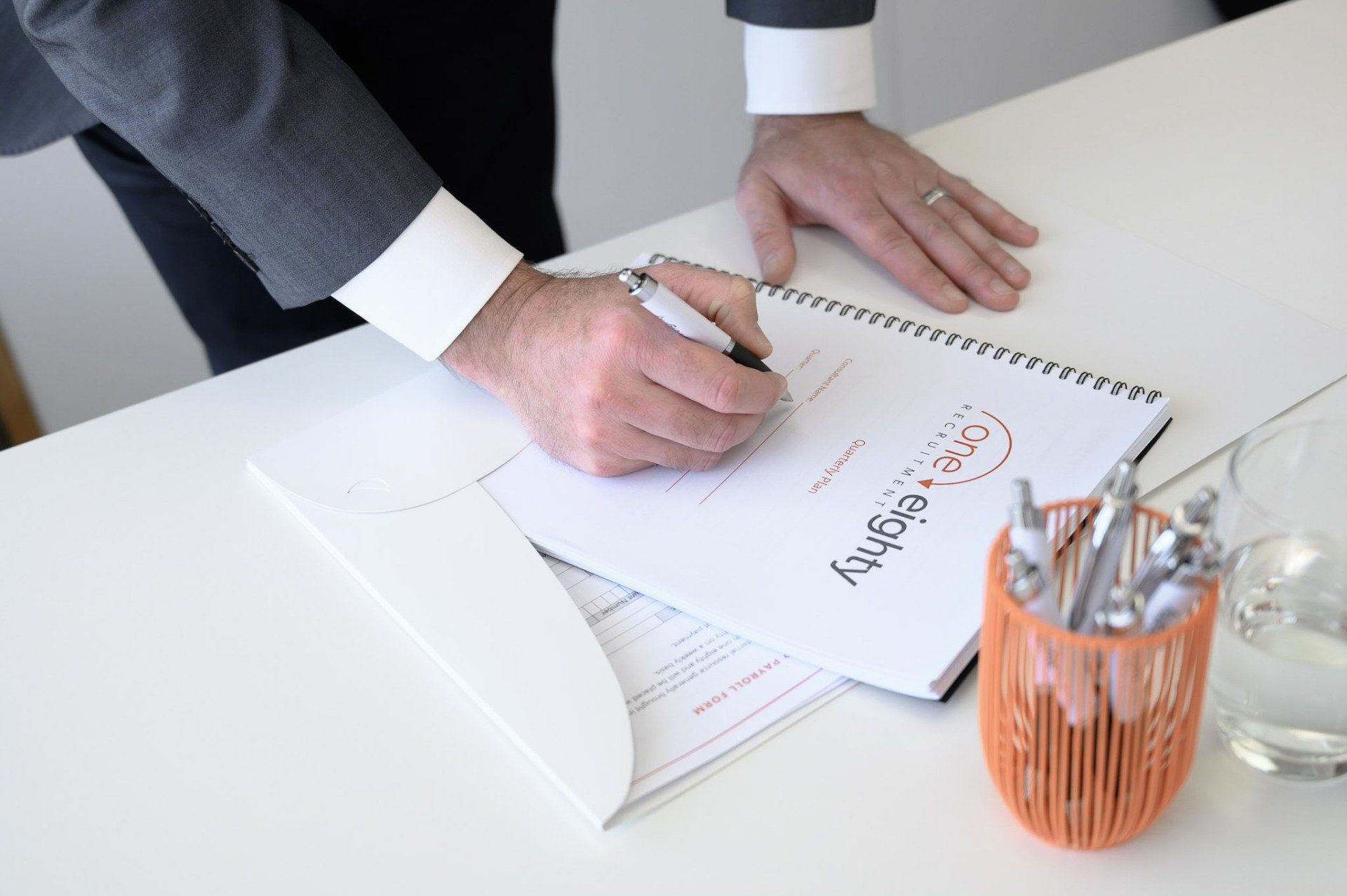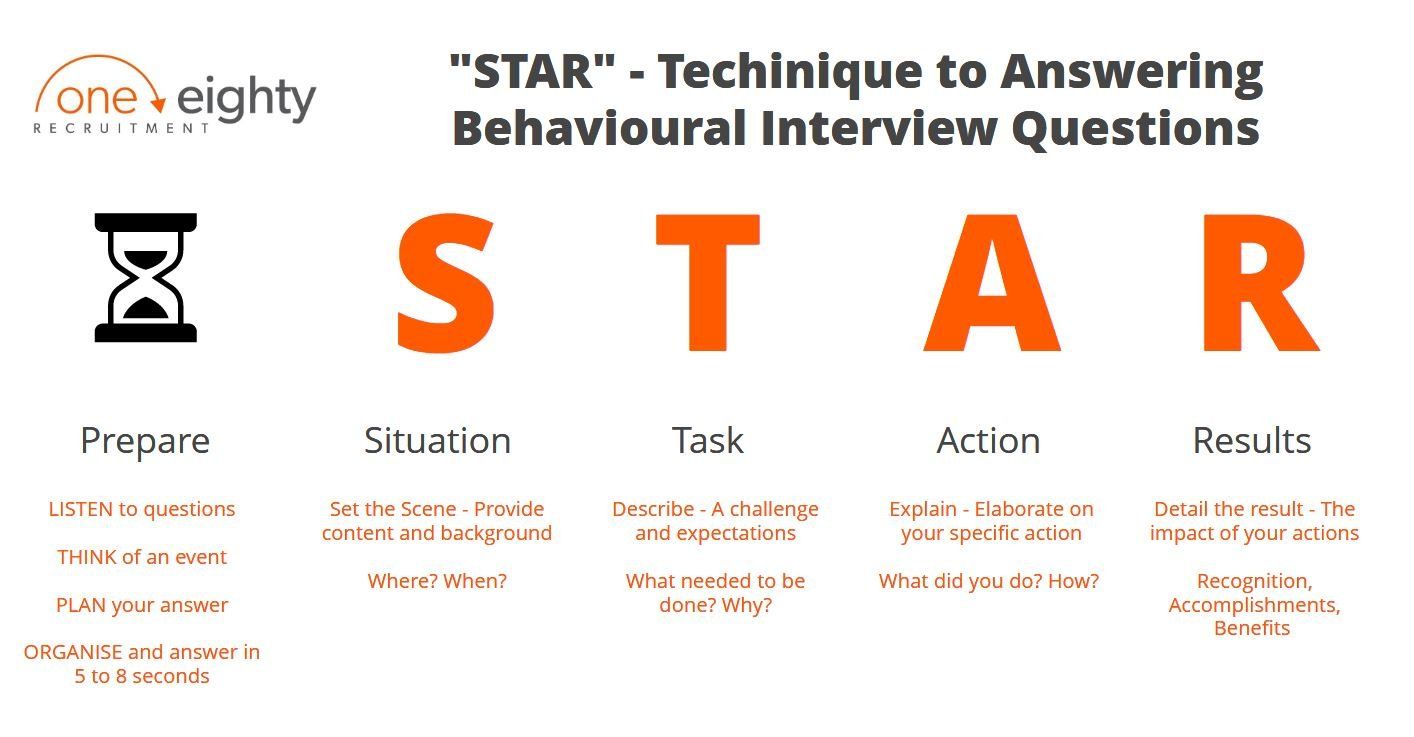Interviewtips

In the current job market there is a high demand for candidates in all of our sectors. The market is moving rapidly and employers are desperate to fill roles — but what does this mean for you as a job seeker and potential candidate? We’ve gathered some tips and advice from our recruitment experts to help you navigate job hunting during this time. Don't send your CV everywhere You might think that sending your CV to every potential employer will increase your chances of getting an interview, but it can actually have the opposite effect. As a candidate, you will get diluted — especially if you are not altering your CV to suit each job application. Because of this, the perception of who you are may also get misrepresented. Be prepared to move fast The job market is booming, but clients are still facing a number of challenges when it comes to recruiting the perfect candidate. The rapid speed of the market means that people aren’t moving for money, but rather for great opportunities that need filling ASAP. This hot demand means that candidates have no choice but to move quickly, so be prepared to make immediate changes if you have a successful job application. Uncover the real reason why you're moving jobs Although financial gain is a tempting reason to move jobs, you shouldn’t do it solely for money. It’s important to uncover the real reason why you want to move and instead find a role that's perfectly suited to your skillset and needs. Remember, you can always negotiate your salary if you are not happy with the employer’s offer. Going for a casual coffee is not an interview Although it’s not a formal interview, getting a casual coffee with a potential employer does create opportunities. If you decide to reach out for a chat, make sure you come prepared with questions to ask about them and their company so no time is wasted. It’s also important to be clear on the kind of roles you’re looking for even if there is no current opportunity at their company — New Zealand is a small place and it’s likely they could connect you with other people in the industry who may be able to help you. Dress to impress First impressions are everything, so it’s important that you make an effort to dress appropriately for an interview or meeting with a potential employer. Even if your line of work involves being on site all day, you need to make an effort to look tidy. Consider all types of work Contracting, temping, permanent or fixed term — there are lots of different opportunities for work that may interest you, and each come with their own benefits and requirements. Contracting is a popular recruitment solution for many employers as they can often bridge skill gaps and help meet short-term capacity demands. Temping is also a great option for candidates looking for shorter work commitments where you may be employed for a specific assignment for a set amount of time. The candidate short market means that employers are needing their job vacancies filled as soon as possible. If you’re looking for a new job opportunity but are unsure where to start, then get in touch with one eighty today. Our team of recruitment experts are he

The biggest mistake we can making when hiring new employees is to have unrealistic expectations and unclear objectives. For a smooth hiring process, it is important to nail these tasks for the best outcome. A Clear Job Brief Working with your recruiter it is important to take the time to be 100% clear on what the job is, what objectives are, and the type of candidate you are hoping to attract. An Easy Application Process This is where working with a recruiter really helps. The systems support candidates to apply for the job in an easy manner whilst upholding candidate experience. Be Prepared for the Interview So much value and gained and provided during an interview for both the recruiting company and the candidate. If left with a bad impression, both parties won’t move forward with the process. Prepare questions and set up a great space for the interview (is it online? Make sure the wifi is good!). Move Quickly, But Not Too Quickly After a great interview, candidates are often excited to move forward with the process. They’ve fallen in love with your company and the opportunity. Leaving it too long to provide feedback or move forward with the process can sour the process. The feeling of value and worth (from the candidate) goes down, and they start to question if the opportunity is worth pursuing. Keep moving forward. Misaligned Expectations This is where a good recruiter adds value to ensure there is a match. Expectations should be up front, and addressed early in the process so that nothing comes up towards the end as a surprise which ruins the opportunity. Outlining expectations early in the process assists with a smooth process from start to finish. Communicate Above all, keep communication high. Utilise the recruiter as much as possible. They are here to help both parties. It’s just what they do – and they do it well! A smooth hiring process should be enjoyable for everyone. It’s the beginning of a new relationship, so it’s worth getting it right. Need some help with hiring or looking to make a job change? Feel free to contact us.

Email etiquette is an unspoken code. So, we've deciphered it for you... The Subject Line Keep it short and simple. Always use a clear and direct subject line which summarises or describes the content of the email. Never leave the subject line blank and rather use it to organise messages for people with overcrowded inboxes. The Email Body Use a professional salutation. For most emails “Hi” or “Hello” will suffice, but for more formal emails, use “Dear (insert name)”. Using the recipient’s name in the salutation is important and never shorten a person’s name unless they have given you permission to do so. Stick to the point and keep it short. Many professionals get inundated with emails daily, therefore it is important to keep your emails short and to the point. But don’t be too concise. Never give one-word responses as this can be considered rude and unprofessional. As far as possible, try to respond with full sentences. The Sign-Off / Signature Keep your closing simple. Adjust your closing to suit the intended recipient, but in a professional capacity it may be best to stick to “Best wishes” or “Kind regards”. Keep your signature simple, too. There is no need for coloured pictures or deep, meaningful quotes - just stick to your name and contact details. And, always include your phone number! Best Practices Know the “cc” rule and abide by it. The main recipients of an email who are expected to respond go in the “to” field, and the other recipients who are not expected to respond but were included as a courtesy or for their information, should go into the “cc” field. Double check that you are sending the email to the correct recipient. Make sure to pay careful attention when adding an email address in the “To” field as some computers automatically generate the last / most common email address from memory. Nothing is worse or more unprofessional than sending an email to the wrong person! Use the “Reply to All” function sparingly. Some recipients may get annoyed when they receive answers or correspondence that is not pertinent to them or doesn’t require them to respond. What are your email etiquette tips? Let us know in the comments below, we'd love to hear them.

This blog post is being published during the COVID-19 outbreak. In consideration of the COVID-19 outbreak; at one eighty recruitment we are staying proactive and supportive to enable clients and candidates to continue to connect in the job market with health and safety in mind. One of the most important parts of finding a new job is having a great interview. Employers and recruiters are potentially opting for video interviews during this time on platforms such as Skype or Zoom. What is shocking is the amount of times these interviews can go south, because candidates are not prepared for this type of interview. So, without further ado, here are some tips to prepare for a remote/video interview: Top Tips for Skype and Video Interviews 1. Double Check Interview Time A lot of these video interviews happen across time zones, so you want to ensure that you have the correct time. Whether you’ve scheduled the interview with the employer directly, or with a recruiter – ALWAYS double check your time. 2. Test Technology The first thing to do when preparing for a Skype or video interview is make sure you’re comfortable and ready to use your technology (computer, mic, webcam, etc.) It’s not going to go well if you hop on a Skype call and the interviewer can’t hear you because your mic is muted. So make sure to test everything out before your Skype or video interview to make sure you’re comfortable with the technology and the settings are correct. You can do a “test run” with a friend or family member to be sure. If there are any technical issues, you want to know that before the interview. 3. Pick the Best Location. The last thing you want during your Skype interview or video interview is to have a family member or pet come running across the screen. So find a quiet, distraction-free room where you can shut the door and have relative silence, and nothing moving in the background. This could be a private meeting room, somewhere at home or a quiet, local café. 4. Do Your Homework This step is very important. You want to convey the message that you are interested, and that you are taking this opportunity seriously. Research is extremely important. If you have your interviewers name, check out their LinkedIn Profile. Check out the Company Website, LinkedIn Profile and any recent articles or news on them. Also do your homework when it comes to the position – go over the job description that was supplied. Read over your CV and see what aspects of your work overlaps with the job description, these are your strengths. Focus on the required skills and brush up on these technologies. If you made notes during your call with your recruiter go over those. 5. Dress for Success Dress appropriately for your interview in relation to what type of position you are interviewing for. In my opinion you can never go wrong with a power suit (or your equivalent of this). It not only looks great, but it makes the person wearing it feel confident and strong. If you don’t have a power suit, wear something professional, clean cut and comfortable 6. Prepare Questions and Answers Always remember that as much as an employer is interviewing you to see if you are a good match, you are also interviewing them for the same. Have questions prepared, we normally suggest about five or six. These questions could be related to the technical side of things, or career progression and educational allowances, think big. This will show your interest in the company 7. Don't Forget to Breathe, and Sleep Seeing as you have already prepared everything, take a moment, relax and get a good night of sleep. If you are into meditation, have a session when you wake in the morning to clear your mind and get you ready for the big moment. 8. Turn Off All Notifications The client may not be in the same room with you, but it will be easy to sense or see if your attention is diverted. This can come across as unprofessional, or disinterested. Turn your notifications off and put your phone on silent mode. Better yet – just turn your phone off. Where to from here? We wish you all the best with your Skype or video interview. Whether you are on the move, or just thinking about moving in the foreseeable future, we are always more than happy to help with a chat. Please feel free to contact us.

So, it's time to take the plunge and you are looking for a new job? We asked Mike Westbury for recommendations of the first three things to action before embarking on a new job hunt. Check out the video below. As mentioned in point #1 of the video, at one eighty recruitment we've had hundreds of chats to help people articulate point #1 so please do reach out for a chat if we can help. Looking For A New Job? 1. Work out what you want Work out what you want in a job. Take some time to write down what you are hoping to achieve by changing jobs, is it a career change, a progression, lifestyle? It helps to have thought about these things before looking for a new job to ensure you are fulfilled in your new job. 2. Rewrite your CV. Rewrite your CV for the job you want, rather than the job you want. What are the skill sets, attributes and qualities required to be able to successfully do the job you wish to obtain? We have some CV writing resources here, or alternatively we are always happy to chat and assist with tips. 3. Connect. Connect with people and places where you want to work. Connect with people who are going to help you get to where you want to be. Perhaps even ask those people for a coffee and casual chat. The more you connect and get to know about your desired role, company or career, the better set you are to achieve your goals. Where to from here? Whether you are on the move, or just thinking about moving in the foreseeable future, we are always more than happy to help with a chat over a coffee or over the phone. Please feel free to contact us.

Being assertive in the workplace can be a balancing act as you need to get your point across without being overbearing. A lack of assertiveness in the office can be a major contributing factor to poor performance. Assertive people are able to voice their thoughts and opinions without apologising OR dominating. Below are 5 key tips on how to be more assertive at work: 1. Say "NO" It allows you to select what you do. In this instance "how" you say no is what matters most - be direct but not aggressive. 2. Know your role This will allow you to focus on what you need to get done and not get distracted. 3. Anticipate problems Problems are part of your day and you can better manage them when you expect them to occur. 4.Value your time This relates to point 1 - your time is precious and valuable. Ensure your time is spent being productive. 5. Manage expectations When you have a clear goal, and everyone knows what you/they are working towards, you can better manage everyone's expectations. Being assertive at the workplace translates into being confident and not being afraid to share what you want or believe in. Assertiveness leads to positive, respectful and confident behaviour whilst also understanding the needs and feelings of one's colleagues. The main benefit of being assertive is that you will find mutually beneficial solutions to interpersonal issues and conflicts, which in turn means people are able to send the right signal and receive the right response.

READY FOR YOUR JOB INTERVIEW? DON'T LET YOUR BODY LANGUAGE LET YOU DOWN. Interviews can be intimidating, and are sometimes daunting, like anything else, it is a skill that can be practiced and perfected. Body language adds a whole new dimension to the way you present yourself, so it’s important to brush up on the basics before you step foot into that interview room. Here are a few do’s and don’ts on how to make a good first impression: Walk tall with a straight back When greeting the person who is interviewing you it is important to smile, greet them by their name and look the person in the eye whilst giving a firm handshake It is important to maintain a good level of eye contact throughout the interview, otherwise it may come across that you are shy or intimidated. If you don’t feel confident doing this, a trick is to lower your eyes towards their nose When being interviewed, sit with a straight back and don’t slouch in your chair Be aware of what you are doing with your hands – Make sure that you are not fidgeting with your hair / nails / have your arms crossed. Some people use their hands when explaining things and this is ok but try not to be too animate Avoid chewing gum Research the company and the employer before going into the interview After the interview, it is good to follow up with an email thanking them for their time. This will show them that you are really interested in the job and it is also a polite gesture, which the interviewer may appreciate In case you missed Vol. 1 - STAR - Technique to answering behavioural questions In case you missed Vol. 2 - What does the colour of your interview clothes say about you?

One important, and often overlooked, aspect of an interviewee's first impression is colour. The colour of your clothing sends a subconscious message to the interviewer about your personality. What different colours say Colour Psychology is the study of how hues can influence human behaviour and perception. Different colours evoke particular human responses, whether or not we are conscious of them. Below is a list of different colours you might want to wear for an interview, and the emotions they can evoke. White Crisp and clean, white is a great colour for shirts and blouses. The colour conveys truth and simplicity and adds a bit of brightness without being too overwhelming. Blue Blue, particularly navy, is another great neutral colour for interview outfits. Blues convey feelings of calm, trust, and confidence – great qualities for an interviewer to sense in you. Black Black is a very popular colour for suits and dresses in interviews. This is a good colour for a job in a conservative environment like a law office, or for an interviewee applying for a high-level executive position. Grey Grey is another great neutral colour for interview outfits. It evokes sophistication and neutrality. It is a great colour to wear as a suit or dress; it allows you to look powerful but is not quite as domineering as a black suit or dress. Brown Brown is a neutral colour that evokes feelings of calm. It is a great solid, neutral colour for an interview. Presentation Your personal presentation can also have a great impact on an interviewers first impression of you. The way you dress for an interview can vary greatly depending on the company, industry and location so do a bit of research on the work environment before your interview. You want to wear clothes that you are comfortable in, but also show that you have a well presented and tidy appearance. If you are unsure, the key is to dress one step above what you would usually wear in the position for which you are interviewing. Below are a few tips on presentation: All interview outfits should be clean, well ironed, free of any animal hairs, deodorant marks, fraying hems, straining zips / buttons or any general wear and tear Grooming – Clean fingernails, fresh breath and deodorant are all essential Perfume should be subtle and not too overpowering Men need to be clean shaven or have their beards well groomed Accessories - Briefcases and handbags should be smart and the contents well organised Shoes should be clean and polished, if wearing high heels, make sure they are comfortable and easy to walk in Jewellery should be subtle and unfussy In case you missed Vol. 1 - STAR - Technique to answering behavioural interview questions Coming soon Vol. 3 - Do's and Don'ts during a job interview

USING THE STAR METHOD TO ANSWER BEHAVIOURAL BASED INTERVIEW QUESTIONS. The STAR technique is a method of answering behavioural based interview questions in a manner which proves your skills and experience for the job in question. STAR is an acronym for Situation, Task, Action and Result. Situation - Set the background or scene - provide some context Task - Describe the challenge or objective - what needed to be done Action - Elaborate on your specific action - explain what you did Result - What was your result - share the outcome HOW TO APPLY THE STAR METHOD IN AN INTERVIEW Most behavioural based interviews will focus on previous work related challenges or situations that demonstrate your critical thinking and problem solving. To prepare for the interview, make sure you have a good idea of the job description and role you are applying for and use clues from that to prepare your STAR answers. Then, make a list of previous situations you've handled in your professional career that would display the strengths you'll need to succeed in the role. No matter what experience or situations you decide to share, make sure you define the Situation, Task, Action and Result, to showcase your skills and abilities for the particular role. KEEP AN EYE OUT FOR THE NEXT 2 VOLUMES COMING OUT SOON! Vol. 2 - Dress for Success Vol. 3 - First Impression Counts! What not to do in an interview

